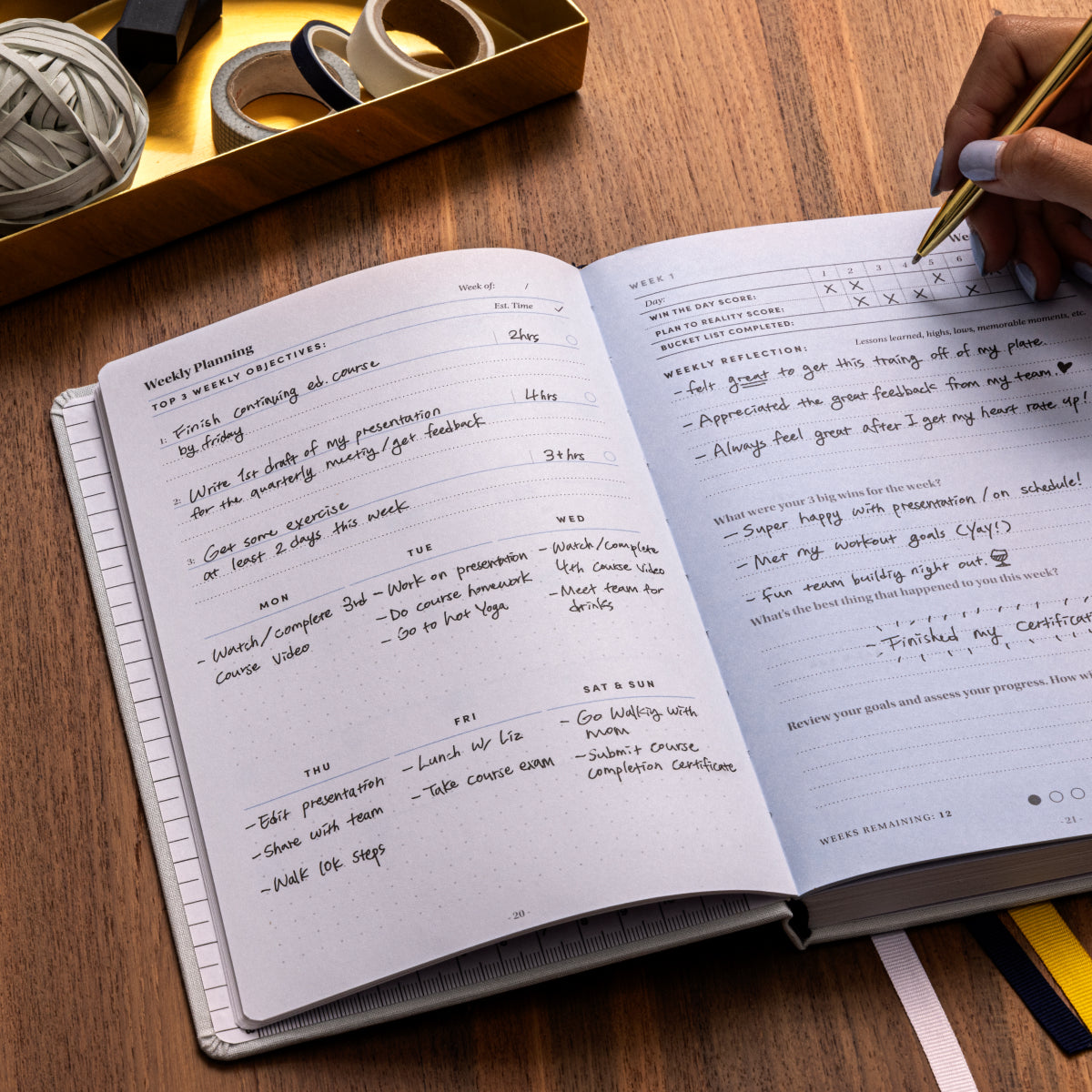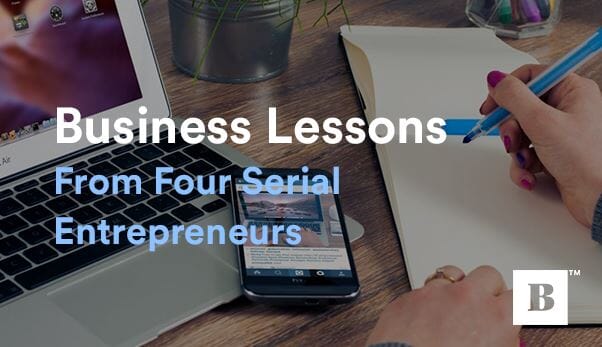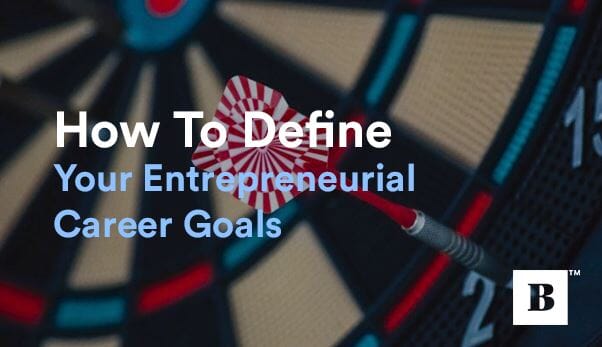If you want to succeed in your entrepreneurial goals, you need to educate yourself. Reading remains the most efficient way to do this. Books condense the best knowledge out there into packages that you can digest in a matter of days, providing an affordable, high-value way to engage with the greatest minds in any category.
Self improvement is a crucial component of entrepreneurial success; in order to grow as a manager and a business owner, you must cultivate personal growth constantly, taking at least one small step each day to make yourself happier, healthier, or more productive than the day before. Consider starting with these seven must-read self improvement books to kick off your personal development journey.
1. Think and Grow Rich by Napoleon Hill
Through his personal observations of successful people, Napoleon Hill created this business and self-improvement classic, first published in 1937. The book outlines 13 principles that form Hill’s “Philosophy of Achievement”.
The key takeaway: The most powerful lesson of Think and Grow Rich is this: positive thinking is the key to success. Don’t let the title give you the impression that this book is only about building financial wealth. While that is part of the book, Hill’s principles are meant to help you succeed in any endeavor, whether that’s building a business or advancing your career.
2. The 7 Habits of Highly Effective People by Stephen R. Covey
First published in 1989, Covey’s classic best-seller (which has sold more than 25 million copies worldwide) takes an approach to self-improvement that seemed revolutionary at the time. As the title implies, the book outlines seven habits that enable the reader to lead a more “effective” life. What does it mean to be a “highly effective” person? Covey defines it as getting the results you desire while also caring about how you get those results.
The key takeaway: We won’t give away the seven habits here, but we will tell you that Covey places them in a deliberate order that focuses on helping you move from dependence to independence to interdependence. That is, first you focus on improving yourself, and only with that solid foundation can you shift to helping and working with others.
3. How to Win Friends and Influence People by Dale Carnegie
If you read no other book on improving your social skills, it should be this one. Despite being first published in 1936, Carnegie's book remains one of the most relevant and effective books for helping you to cultivate relationships in life and business. Don’t let the title put you off, either. The foundations of the book are not about how to manipulate people or force them to be your friends; rather, the principles Carnegie outlines are based on how to be a genuinely friendly, likeable person.
The key takeaway: The book has too many valuable lessons than we have space to cover here, so we’ll give you our favorite lesson. If you want to make friends, Carnegie explains, the key is to become interested in other people, rather than focusing on being interesting. People love to talk about themselves, so let them, and watch just how helpful this technique is for building relationships.
4. The Power of Habit by Charles Duhigg
It’s no coincidence that habits are a uniting theme among several of these books. Taking control of your habits is one of the keys to lasting self-improvement, as it allows you to put the best activities on autopilot. Like The Seven Habits of Highly Effective People, Charles Duhigg's book also has its basis in habit formation. But instead of outlining specific habits that readers should build, Duhigg digs into what behavioral psychology can tell us about habits. After exploring what habits are and how we form them, Duhigg moves on to give a practical guide to how to change them in your daily life. Whether you want to break a bad habit or build a new good habit, Duhigg's book will show you how.
The key takeaway: Duhigg proposes a concept he calls the “habit loop”. The habit loop explains that all habits consist of a cue, a routine, and a reward. To use an example familiar to many entrepreneurs, your morning coffee is a habit that consists of getting up (the cue), making and drinking a cup of coffee (the routine), and feeling energized from the dose of caffeine (the reward). If you want to change an existing habit (or build a new one), then all you have to do is design or manipulate these three parts of the loop.

5. The Subtle Art of Not Giving a F*ck: A Counterintuitive Approach to Living a Good Life by Mark Manson
Many of the books on this list (and in the self-help industry in general) focus on the power of positive thinking in helping you get the life you want. Manson’s book presents an opposing view, arguing that focusing on being positive all the time can do more harm than good. Instead, Manson argues, you should learn to be more indifferent to the things in life that do not matter and embrace life’s adversity.
The key takeaway: The book’s message hinges on what you do and do not pay attention to, on what does and does not matter to you. To not give a f*ck about most things, Manson argues, frees up your energy to focus on the things that really do matter to you. Manson is not proposing that you become apathetic, but rather that you don’t waste your energy on anxiety about things that do not, in the grand scheme of things, matter.
6. Daring Greatly: How the Courage to Be Vulnerable Transforms the Way We Live, Love, Parent, and Lead by Brené Brown
In one of the more recent books on this list, social work professor Brené Brown works to redefine vulnerability as a powerful tool for self-improvement. While "vulnerability" has traditionally been asspcoated with weakness, of something you should avoid, Brown presents an alternative definition as you can see below.
The key takeaway: “I define vulnerability as uncertainty, risk and emotional exposure. With that definition in mind, let’s think about love. Waking up every day and loving someone who may or may not love us back, whose safety we can’t ensure, who may stay in our lives or may leave without a moment’s notice, who may be loyal to the day they die or betray us tomorrow — that’s vulnerability.” (via TED)
7. The Self Journal by BestSelf Co
While not a self improvement book in the same sense as the other books on this list, this daily planner will help you structure your day, enjoy life, and reach your goals quicker than you thought possible. Based on science-backed principles of goal-setting and habit formation, our journal helps you align your tactical daily goals with your larger life goals.
The key takeaway: To achieve big things, you need a plan. This journal helps you create one, setting and reviewing goals on a 13-week timeline that strikes the perfect balance between the short-term and long-term, between the achievement you can see and stretching yourself to do something you never thought possible. Learn more here.








Leave a comment
This site is protected by reCAPTCHA and the Google Privacy Policy and Terms of Service apply.